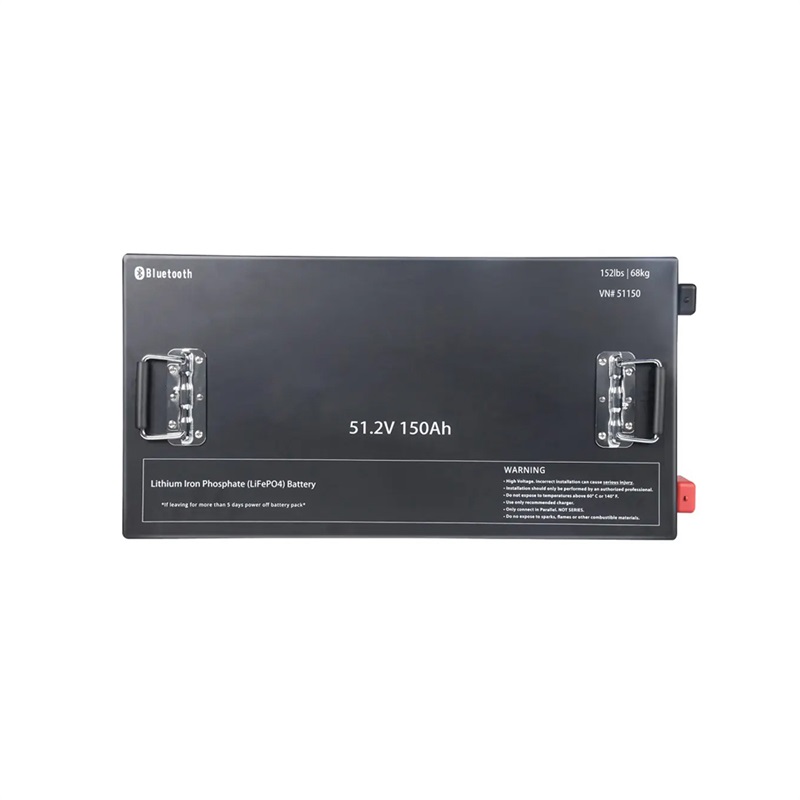48V 51.2V 150Ah Lithium Golf Cart Battery
48V/51.2V 150Ah lithium iron phopshate lifepo4 golf cart battery
48V 51.2V 150Ah lithium Golf Cart Battery
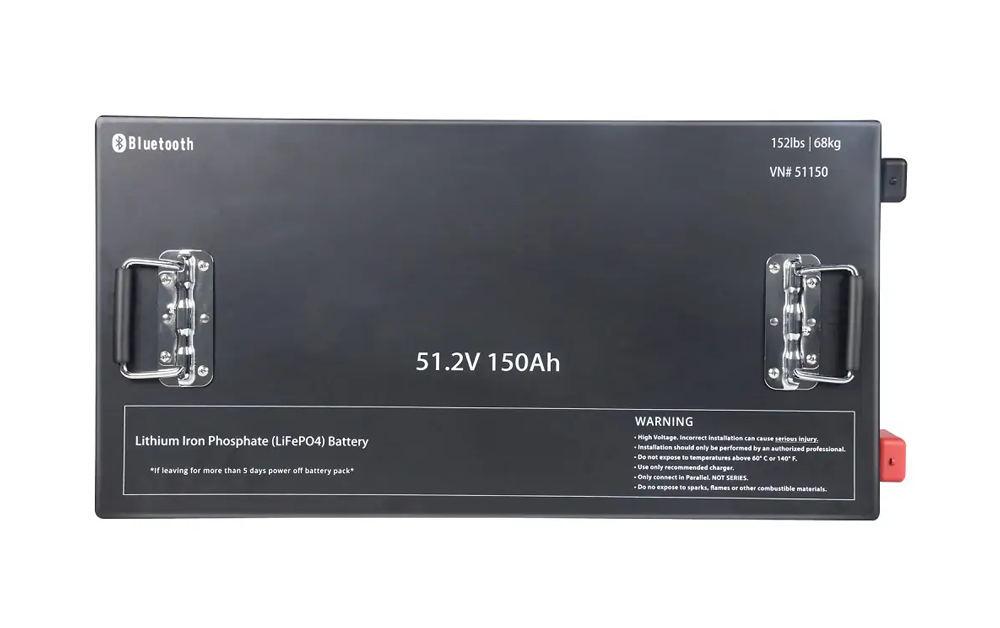
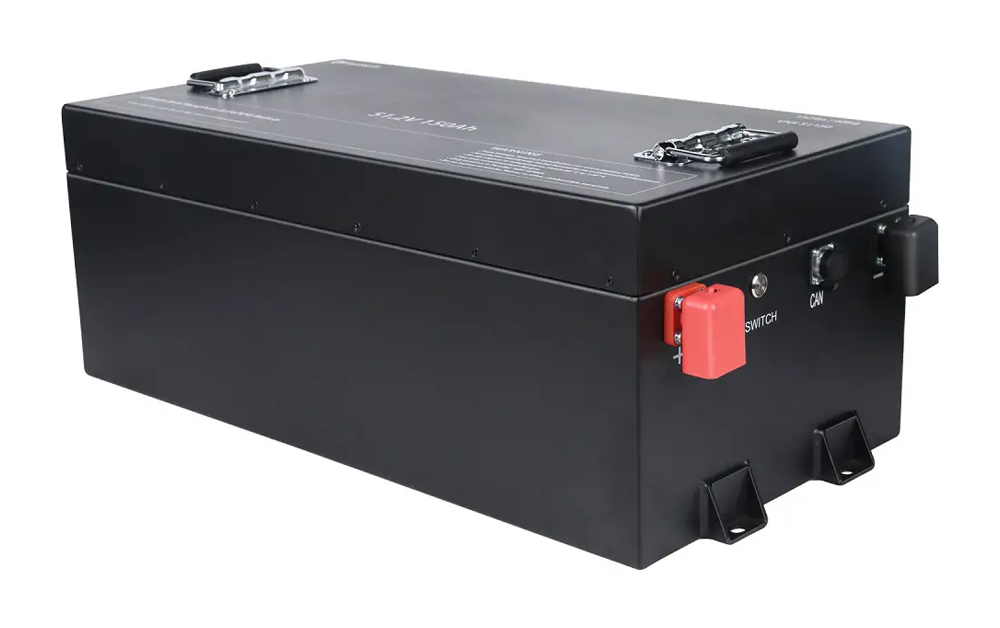
Features
PET can bear 850kg, avoid bulging
CCS vehicle-grade craft, integrated wires
Support RS485/CAN/Bluetooth etc
3-4mm metal plates on both sides
Reserve 1mm width for potential bulging
Distributed sampling system to solve sampling impedance problem
Specifications
Item | Rated Performance |
Cell Model | 16S1P |
Communication Function | CAN / RS485/ Bluetooth APP |
Way to work | Use alone or in parallel |
Rated Capacity | Typical 150Ah |
Nominal voltage | 51.2V |
Discharge cut-off voltage | 44.8V |
Charging voltage | 58.4V |
Internal resistance, AC Impedance, 1KHz | ≤8mΩ |
Standard charge current | 0.5CA |
Standard discharge current | 1CA |
Fast Charge | 1CA |
Fast Discharge | 200A |
Maximum Continuous Charge Current | 1CA |
Maximum Continuous Discharge Current | 200A |
Discharge Pulse Current | 300A, ﹤60S |
Operation Temperature Range | Charge: 0~55℃, Discharge: -20~65℃ |
Weight | Approx:71Kg |
Dimension | 675(H)*325(W)262.5(T)±5mm |
Ingress Protection | IP65 |
Cycle life | 3000cycles @80%DOD, 0.5C, 23±2℃ |
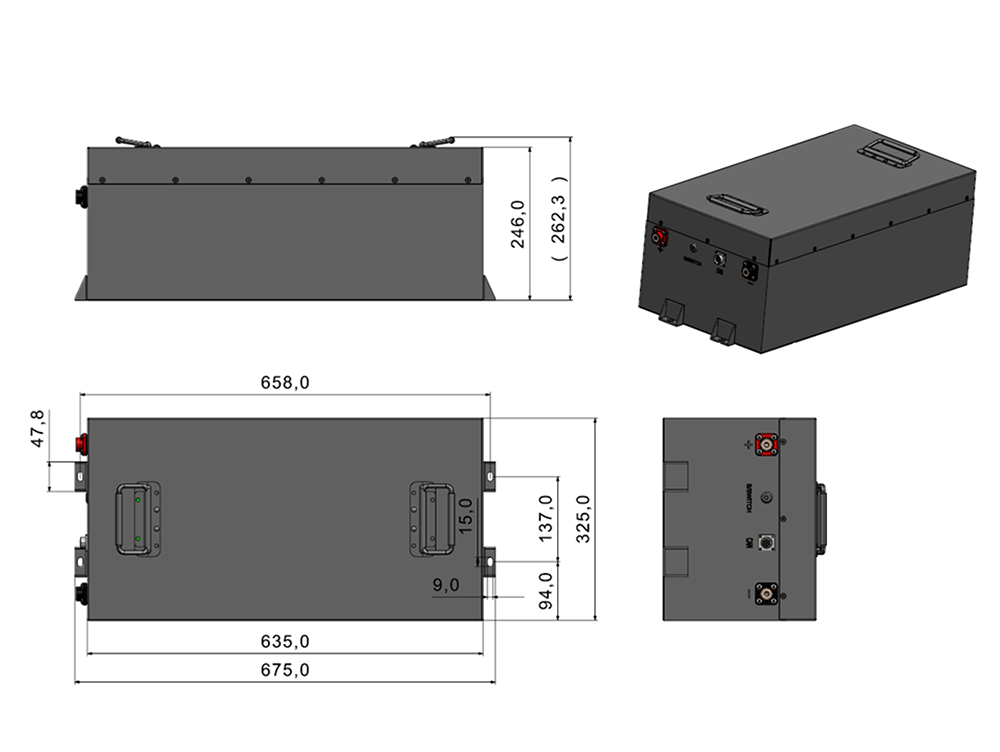
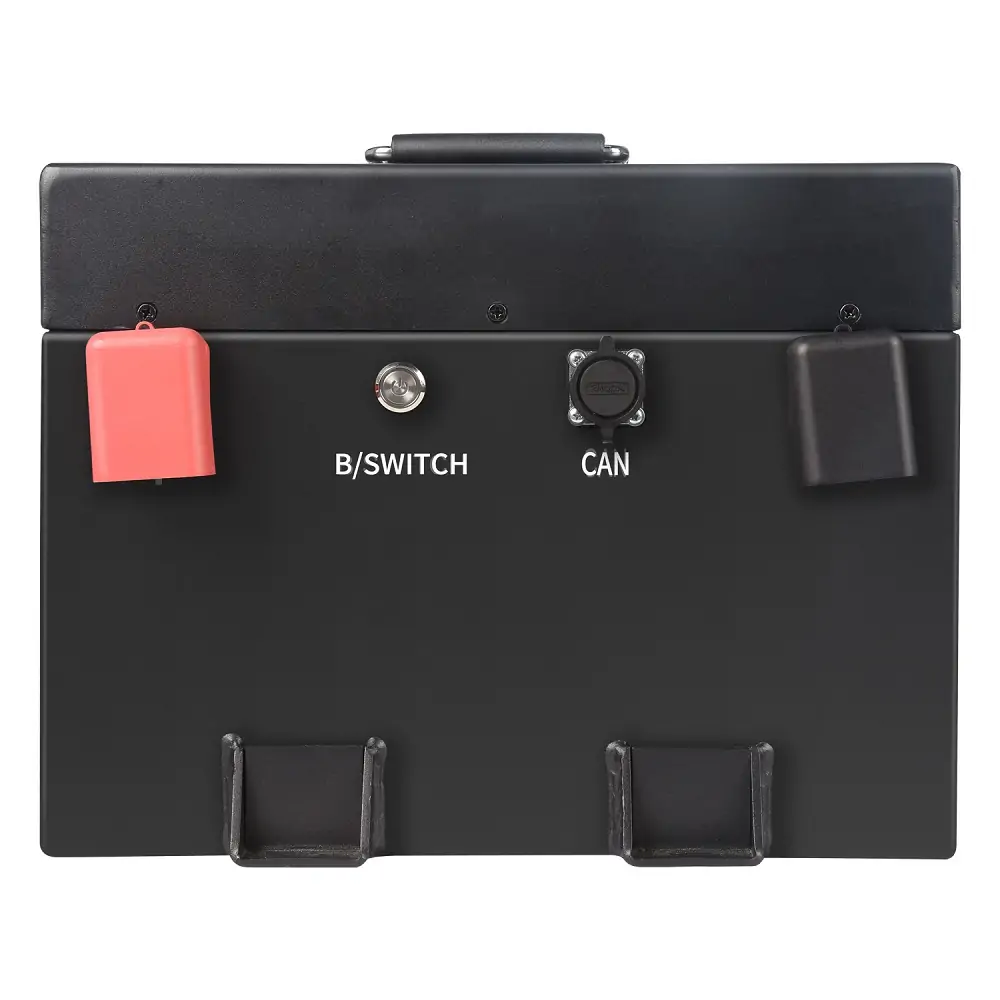
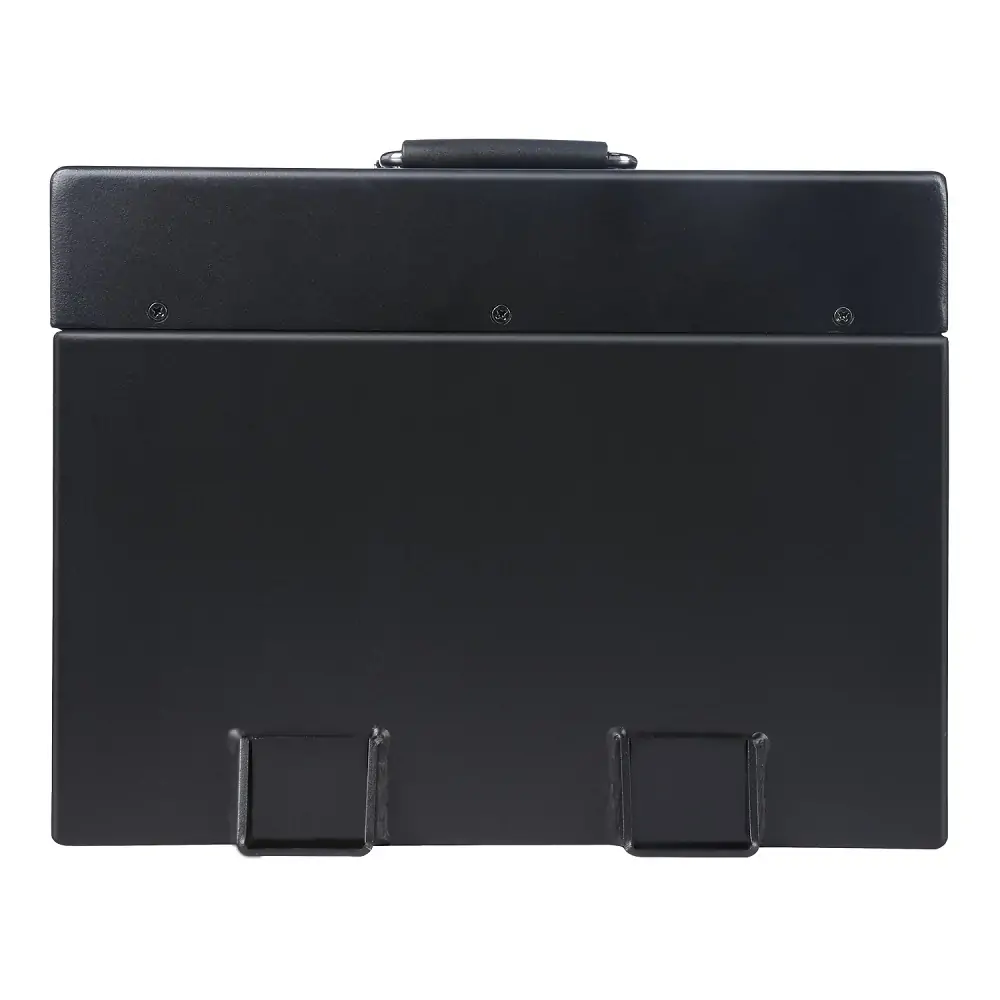
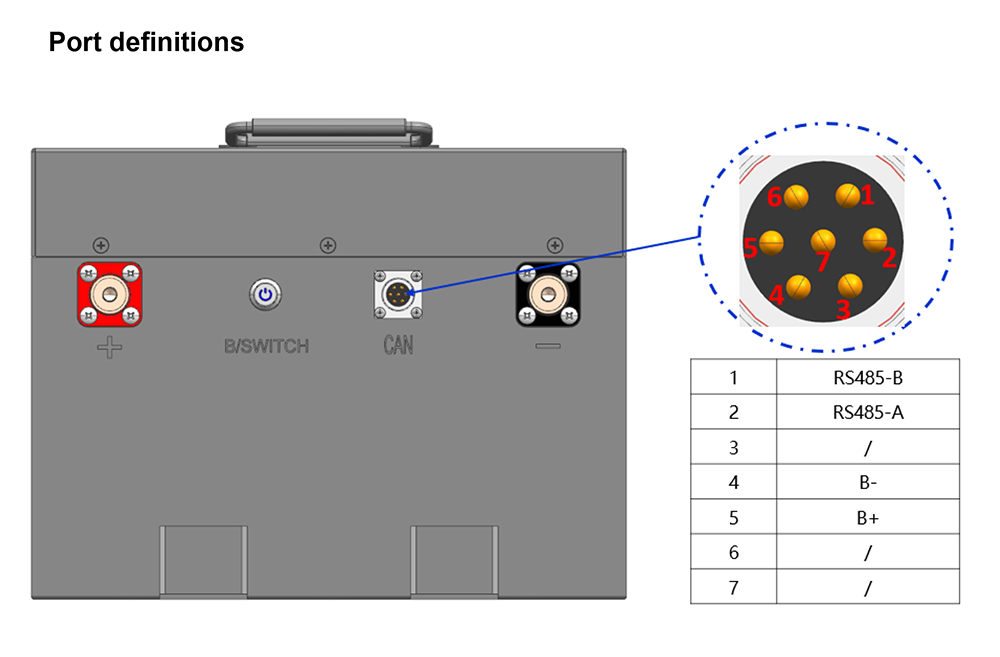
Battery Precautions and Safety Instructions
To ensure proper use of the battery please read the instructions carefully before using it.
Handling
Do not expose or dispose the battery in fire.
Do not put the battery in a charger or equipment with wrong terminals connected.
Avoid battery short circuit.
Avoid excessive physical shock or vibration.
Do not disassemble or deform the battery.
Do not immerse in water.
Do not use the battery mixed with other brand, type or model.
Keep out of the reach of children.
Charge
Battery must be charged in appropriate charger only.
Never use a modified or damaged charger.
Do not leave battery in charger over 24 hours.
Charging current: Don’t surpass the highest charge current as stated in this specification sheet.
Charging voltage: Don’t surpass the highest charge voltage as stated in this specification sheet.
Charge temperature: The battery must be charged in the ambient temperature range as stated in this specification sheet.
Charge the battery via constant current first and then via constant voltage, no reverse charge. If the positive electrode and the cathode mixed, the battery can be damaged.
Store the battery after it's charged. The battery should be recharged/re-discharged every 3 months.
Discharge
The discharge current shouldn’t surpass the highest discharge current as stated in this
specification sheet. If surpass, the battery may be damaged and it can result in hot battery which is risk.
Discharge temperature range: The discharge must be done in the ambient temperature range as stated in this specification sheet.
Over-discharge: A short-time over-discharge will not affect the use of the battery, but long-time will do. If the battery is not used for a long time, the performance will get poorer. It should be recharged and re-discharged fully several times before it's recovered.
